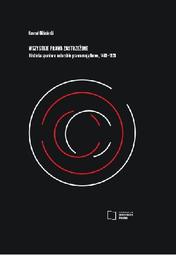CopyCamp 2015: speakers
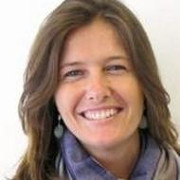 Giorgia Abeltino is in charge of Public Policy for the Google Cultural Institute. Before focusing on culture and digital, Giorgia led the Google public policy team in Italy. She graduated in Law at the Università „Federico II” in Naples (Italy), she got an LLM in European Studies at College of Europe of Bruges (Belgium). She started working in Brussels, focusing on antitrust issues, first at a law firm and then at the European Commission, DG Competition. For four years, she worked in the regulatory affairs department of Sky Italia in Rome, then she moved to New York City to work on regulatory and public affairs issues at NewsCorp. Giorgia is deeply interested in the interplay between society, culture and technology. She is member of the permanent committee of the Pontifical Council for Culture of the Vatican focusing on women.
Giorgia Abeltino is in charge of Public Policy for the Google Cultural Institute. Before focusing on culture and digital, Giorgia led the Google public policy team in Italy. She graduated in Law at the Università „Federico II” in Naples (Italy), she got an LLM in European Studies at College of Europe of Bruges (Belgium). She started working in Brussels, focusing on antitrust issues, first at a law firm and then at the European Commission, DG Competition. For four years, she worked in the regulatory affairs department of Sky Italia in Rome, then she moved to New York City to work on regulatory and public affairs issues at NewsCorp. Giorgia is deeply interested in the interplay between society, culture and technology. She is member of the permanent committee of the Pontifical Council for Culture of the Vatican focusing on women.
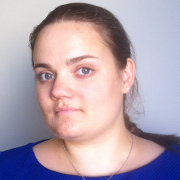
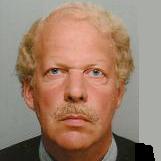 Reinier Bakels – after graduation from Delft Technical University in applied physics, he worked some decades as a technical consultant for a major computer company. In 2000 Reinier graduated in law at Leiden university, and in 2008, he defended his PhD thesis at Maastricht University. During his PhD project (which involved a scholarship at a Max Planck Institute in Munich) he participated in the political process around the European software patent directive proposal (rejected by the European Parliament in 2005), as an advisor both to activists and the Dutch government.
Reinier Bakels – after graduation from Delft Technical University in applied physics, he worked some decades as a technical consultant for a major computer company. In 2000 Reinier graduated in law at Leiden university, and in 2008, he defended his PhD thesis at Maastricht University. During his PhD project (which involved a scholarship at a Max Planck Institute in Munich) he participated in the political process around the European software patent directive proposal (rejected by the European Parliament in 2005), as an advisor both to activists and the Dutch government.
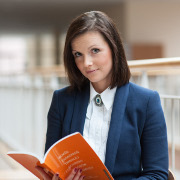 Iga Bałos – PhD in law, specialist in intellectual property protection and enthusiast of speaking about law as simply as possible. She is an Assistant Professor at the Cracow Academy of A. Frycz Modrzewski, where she also serves as a copyright expert in the e-Learning Centre. She cooperates with the patent law firm LOGOPROTECT. Member of the Allerhand Institute Academic Association.
Iga Bałos – PhD in law, specialist in intellectual property protection and enthusiast of speaking about law as simply as possible. She is an Assistant Professor at the Cracow Academy of A. Frycz Modrzewski, where she also serves as a copyright expert in the e-Learning Centre. She cooperates with the patent law firm LOGOPROTECT. Member of the Allerhand Institute Academic Association.
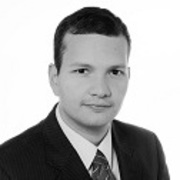 Pedro Henrique Dias Batista is a PhD student at the Ludwig Maximilian University of Munich and former research fellow at the Max-Planck-Institute for Innovation and Competition (Munich). He graduated at the University of São Paulo in 2011 and obtained his LL.M. degree at the University of Munich in 2013. He has written his PhD thesis about Biopiracy and Patent Law since 2013. He is author of several IP-related articles in Portuguese, English and German.
Pedro Henrique Dias Batista is a PhD student at the Ludwig Maximilian University of Munich and former research fellow at the Max-Planck-Institute for Innovation and Competition (Munich). He graduated at the University of São Paulo in 2011 and obtained his LL.M. degree at the University of Munich in 2013. He has written his PhD thesis about Biopiracy and Patent Law since 2013. He is author of several IP-related articles in Portuguese, English and German.
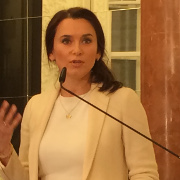 Katarzyna Błeszyńska – Associated Professor at the Faculty of Journalism and Political Sciences of the Warsaw University, where she lectures on copyright and press law; legal counsel in law firm „Błeszyński i Partnerzy Radcowie Prawni”, where she specialises in copyright; author of several scientific articles and a monograph on copyright (Redakcja utworu w prasie drukowanej a ograniczenia praw autorskich, 2011), author of novels (Ciepła głód, 2010, Miłosne konstelacje, 2012).
Katarzyna Błeszyńska – Associated Professor at the Faculty of Journalism and Political Sciences of the Warsaw University, where she lectures on copyright and press law; legal counsel in law firm „Błeszyński i Partnerzy Radcowie Prawni”, where she specialises in copyright; author of several scientific articles and a monograph on copyright (Redakcja utworu w prasie drukowanej a ograniczenia praw autorskich, 2011), author of novels (Ciepła głód, 2010, Miłosne konstelacje, 2012).
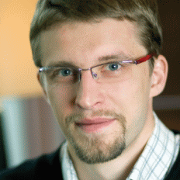 Tadeusz Chełkowski – researches on Open Source communities and analyses relations between theories of economics and social structures’ changes triggered by technologies. Co-owner of wspieram.to crowd-funding service; he develops models of social funding. Professionally, director of Adobe Technology Software Lab managing a team in Poland, India, UK and France. Graduate of Econometrics and Informatics at University of Szczecin and PhD studies at Koźmiński University.
Tadeusz Chełkowski – researches on Open Source communities and analyses relations between theories of economics and social structures’ changes triggered by technologies. Co-owner of wspieram.to crowd-funding service; he develops models of social funding. Professionally, director of Adobe Technology Software Lab managing a team in Poland, India, UK and France. Graduate of Econometrics and Informatics at University of Szczecin and PhD studies at Koźmiński University.
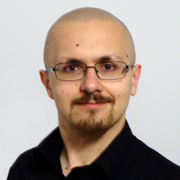 Paweł 'alxd’ Chojnacki – open source and open science activist from Poland. Working as a web developer, he is passionate abut cybersecurity education and information politics in Europe. Neuroscience and transhumanism enthusiast; he believes that sharing knowledge freely is one of the most important values of a modern society. He cooperates with many Hackerspaces and Makerspaces around the world, including the MENA countries.
Paweł 'alxd’ Chojnacki – open source and open science activist from Poland. Working as a web developer, he is passionate abut cybersecurity education and information politics in Europe. Neuroscience and transhumanism enthusiast; he believes that sharing knowledge freely is one of the most important values of a modern society. He cooperates with many Hackerspaces and Makerspaces around the world, including the MENA countries.
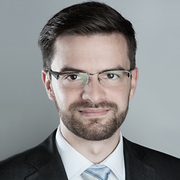 Witold Chomiczewski – legal adviser, partner in Lubasz i Wspólnicy – Kancelaria Radców Prawnych. His main professional experience is focused around e-commerce law and copyright law. Author of publications in the field of electronic services and protection of databases. Editor-in-chief of PortalPrawaIT website. Speaker at conferences on the above issues as well as on data protection and legal aspects of Internet marketing.
Witold Chomiczewski – legal adviser, partner in Lubasz i Wspólnicy – Kancelaria Radców Prawnych. His main professional experience is focused around e-commerce law and copyright law. Author of publications in the field of electronic services and protection of databases. Editor-in-chief of PortalPrawaIT website. Speaker at conferences on the above issues as well as on data protection and legal aspects of Internet marketing.
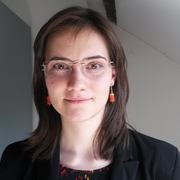 Diana Cocoru – Senior Policy Analyst at OpenForum Europe, a graduate of Paris I Pantheon Sorbonne and the College of Europe, holding a Bachelor degree in Law, one in International Economic Relations and a Master in European Business Law. She gained experience in the decision-making process while working for a Member of the European Parliament active in the Legal Affairs committee. She promoted the benefits of open source software while working for Kabissa, an NGO with impact in Africa. She currently specializes in copyright, closely monitoring policy developments around text and data mining.
Diana Cocoru – Senior Policy Analyst at OpenForum Europe, a graduate of Paris I Pantheon Sorbonne and the College of Europe, holding a Bachelor degree in Law, one in International Economic Relations and a Master in European Business Law. She gained experience in the decision-making process while working for a Member of the European Parliament active in the Legal Affairs committee. She promoted the benefits of open source software while working for Kabissa, an NGO with impact in Africa. She currently specializes in copyright, closely monitoring policy developments around text and data mining.
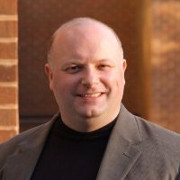 Eoin O’Dell is an Associate Professor of Law in Trinity College Dublin. He researches and publishes primarily in the fields of freedom of expression, and private and commercial law (including IP, IT and cyberlaw) and recently especially in Copyright law. He has been been President of the Irish Association of Law Teachers, a Member of the Council and Executive of the Society of Legal Scholars in the UK and Ireland, and Editor of the Dublin University Law Journal; and he is the Chair of the Fellows of Trinity College Dublin. He was a member of the group which advised the Department of Justice on the Defamation Act, 2009; he was a member of the Advisory Group on a European Civil Code which advised the EU Commission on common principles of European private law; and he is a member of the Statute Law Revision Committee advising the Department of Public Service and Reform on the process of revising the Irish Statute Book. He was Chair of the Copyright Review Group which presented its final report to the Minister for Jobs, Enterprise and Innovation. He blogs at http://www.cearta.ie.
Eoin O’Dell is an Associate Professor of Law in Trinity College Dublin. He researches and publishes primarily in the fields of freedom of expression, and private and commercial law (including IP, IT and cyberlaw) and recently especially in Copyright law. He has been been President of the Irish Association of Law Teachers, a Member of the Council and Executive of the Society of Legal Scholars in the UK and Ireland, and Editor of the Dublin University Law Journal; and he is the Chair of the Fellows of Trinity College Dublin. He was a member of the group which advised the Department of Justice on the Defamation Act, 2009; he was a member of the Advisory Group on a European Civil Code which advised the EU Commission on common principles of European private law; and he is a member of the Statute Law Revision Committee advising the Department of Public Service and Reform on the process of revising the Irish Statute Book. He was Chair of the Copyright Review Group which presented its final report to the Minister for Jobs, Enterprise and Innovation. He blogs at http://www.cearta.ie.
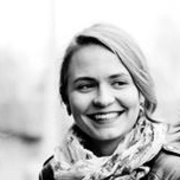 Marta Dubowska – student of law and theory of theatre at the Jagiellonian University. She analyses the relations between law and literature. She recently participated in the panel „Memory and Oblivion” at the World Congress of Philosophy of Law and Social Philosophy (IVR Washington, July 2015).
Marta Dubowska – student of law and theory of theatre at the Jagiellonian University. She analyses the relations between law and literature. She recently participated in the panel „Memory and Oblivion” at the World Congress of Philosophy of Law and Social Philosophy (IVR Washington, July 2015).
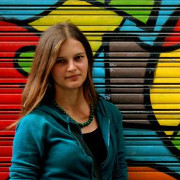 Dominika Gałecka – is a lawyer and art historian. She works in the Regional Centre for Patent Information in the Pomeranian Science and Technology Park in Gdynia. Memebr of the action team at the National Institute of Museums and Public Collections working on the e-Museums project. Member of the expert group dealing with legal aspects of sharing museums’ content online. She specialises in IPR, especially copyright laws.
Dominika Gałecka – is a lawyer and art historian. She works in the Regional Centre for Patent Information in the Pomeranian Science and Technology Park in Gdynia. Memebr of the action team at the National Institute of Museums and Public Collections working on the e-Museums project. Member of the expert group dealing with legal aspects of sharing museums’ content online. She specialises in IPR, especially copyright laws.
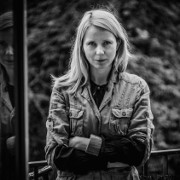 Anna Gawlita – founder of KIJORA FILM production company, film producer and production manager. Involved in the production of such films as “Szczęściarze”, “Lekarze”, “Pałac” by Tomasz Wolski, Piotr Stasik’s „Dziennik z podróży” and Aleksandra Maciuszek’s „Casa Blanca”. Collaborator of the Kraków Film Foundation. Lecturer at the Wajda School, Gdynia Film School, Lódź Film School. She holds scholarship of Polish Minister of Culture and National Heritage.
Anna Gawlita – founder of KIJORA FILM production company, film producer and production manager. Involved in the production of such films as “Szczęściarze”, “Lekarze”, “Pałac” by Tomasz Wolski, Piotr Stasik’s „Dziennik z podróży” and Aleksandra Maciuszek’s „Casa Blanca”. Collaborator of the Kraków Film Foundation. Lecturer at the Wajda School, Gdynia Film School, Lódź Film School. She holds scholarship of Polish Minister of Culture and National Heritage.
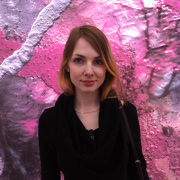
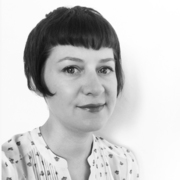 Bean Gilsdorf is an artist and writer. She is currently the editor in chief of Daily Serving, and her critical writing and interviews have been included in publications such as The Miami Rail, Art21 Magazine, Art Practical, and others. She received her BA from Simon’s Rock at Bard College and her MFA from the California College of the Arts, and was a 2011-2012 Fellowship Resident at the Headlands Center for the Arts. She will be a 2015-2016 Fulbright Fellow to Poland.
Bean Gilsdorf is an artist and writer. She is currently the editor in chief of Daily Serving, and her critical writing and interviews have been included in publications such as The Miami Rail, Art21 Magazine, Art Practical, and others. She received her BA from Simon’s Rock at Bard College and her MFA from the California College of the Arts, and was a 2011-2012 Fellowship Resident at the Headlands Center for the Arts. She will be a 2015-2016 Fulbright Fellow to Poland.
 Alina Gut – PhD student in the Institute of Political Sciences at the Cardinal Stefan Wyszyński University in Warsaw, MA of sociology at the Warsaw Agricultural University, MA in media education and journalism at the Cardinal Stefan Wyszyński University in Warsaw. Research interests: methodology of social research, new media, copyright.
Alina Gut – PhD student in the Institute of Political Sciences at the Cardinal Stefan Wyszyński University in Warsaw, MA of sociology at the Warsaw Agricultural University, MA in media education and journalism at the Cardinal Stefan Wyszyński University in Warsaw. Research interests: methodology of social research, new media, copyright.
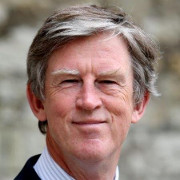 Ian Hargreaves is Professor of Digital Economy at Cardiff University. Most of his career was spent in journalism, where his positions included Deputy Editor, Financial Times; Editor the Independent; Editor the New Statesman and Director BBC News and Current Affairs. His other roles have included responsibility for communications at the UK Foreign and Commmonwealth Office and BAAplc, the former owner of UK airports. He is well known in the copyright world as author of the ‘Hargreaves Review,’ an assessment of the UK’s intellectual property framework conducted at the request of Prime Minister David Cameron in 2010/11. More recently he led an expert group on text and data mining, which reported to the European Commission in 2015. His research interests centre upon the evolution of the digital, creative economy. In 2013 he co-authored for Nesta, the UK innovation charity, a Manifesto for the Creative Economy. He delivered the opening keynote at this year’s European Policy for Intellectual Property Annual Conference in Glasgow. He is also involved in a number of research projects. Media, Community and the Creative Citizen studied the impact of social media on citizenship and will be the subject of a book: The Creative Citizen Unbound (ed Hargreaves I and Hartley J), from Policy Press in spring 2016. He is a Co-Director of REACT (react-hub.org.uk), a knowledge exchange hub centred in Bristol. Working with a small team led by Sara Pepper, Professor Hargreaves is also developing Creative Cardiff, a set of interventions designed to strengthen the creative economy of South East Wales.
Ian Hargreaves is Professor of Digital Economy at Cardiff University. Most of his career was spent in journalism, where his positions included Deputy Editor, Financial Times; Editor the Independent; Editor the New Statesman and Director BBC News and Current Affairs. His other roles have included responsibility for communications at the UK Foreign and Commmonwealth Office and BAAplc, the former owner of UK airports. He is well known in the copyright world as author of the ‘Hargreaves Review,’ an assessment of the UK’s intellectual property framework conducted at the request of Prime Minister David Cameron in 2010/11. More recently he led an expert group on text and data mining, which reported to the European Commission in 2015. His research interests centre upon the evolution of the digital, creative economy. In 2013 he co-authored for Nesta, the UK innovation charity, a Manifesto for the Creative Economy. He delivered the opening keynote at this year’s European Policy for Intellectual Property Annual Conference in Glasgow. He is also involved in a number of research projects. Media, Community and the Creative Citizen studied the impact of social media on citizenship and will be the subject of a book: The Creative Citizen Unbound (ed Hargreaves I and Hartley J), from Policy Press in spring 2016. He is a Co-Director of REACT (react-hub.org.uk), a knowledge exchange hub centred in Bristol. Working with a small team led by Sara Pepper, Professor Hargreaves is also developing Creative Cardiff, a set of interventions designed to strengthen the creative economy of South East Wales.
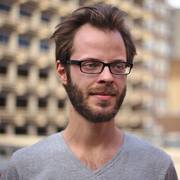 Julian Hauser – a recent graduate in Political, Economic and Legal Philosophy with an MA thesis on the ethics of copyright law. He has worked with European Digital Rights (EDRi), Digitale Gesellschaft e.V. and has been involved in digital rights activism with youth (in the Federation of Young European Greens and the Cooperation and Development Network Eastern Europe). His interests lie in the connections between philosophy, technology, and culture.
Julian Hauser – a recent graduate in Political, Economic and Legal Philosophy with an MA thesis on the ethics of copyright law. He has worked with European Digital Rights (EDRi), Digitale Gesellschaft e.V. and has been involved in digital rights activism with youth (in the Federation of Young European Greens and the Cooperation and Development Network Eastern Europe). His interests lie in the connections between philosophy, technology, and culture.
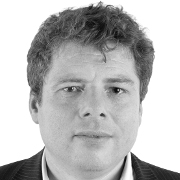 Walter van Holst – By day Walter works as a legal consultant on IT-transactions. By night he volunteers for Vrijschrift, a Dutch member of EDRi. The focus of Vrijschrift is mainly on freedom of expression, free flow of information, copyright reform as well as data protection. Walter has a background in both information management as well as a law degree.
Walter van Holst – By day Walter works as a legal consultant on IT-transactions. By night he volunteers for Vrijschrift, a Dutch member of EDRi. The focus of Vrijschrift is mainly on freedom of expression, free flow of information, copyright reform as well as data protection. Walter has a background in both information management as well as a law degree.
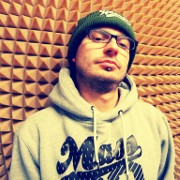 Kamil Jaczyński – sports and culture animator, PR and music marketing specialist. Director of Wielkie Joł music company where he deals with Public and Media Relations, coordination and monitoring of media, publishing and visual projects. Member of ZPAV. Lecturer at the Academy of Music Managers and Polish cademy of Science. Co-author of „Anthology of Polish Rap” published by the National Centre fro Culture. Former editor at HIP-HOP.PL and referee of WBW. Producer of Warszafski Deszcz’s album „Powrócifszy” or Tede’s „Ścieżka Dźwiękowa”.
Kamil Jaczyński – sports and culture animator, PR and music marketing specialist. Director of Wielkie Joł music company where he deals with Public and Media Relations, coordination and monitoring of media, publishing and visual projects. Member of ZPAV. Lecturer at the Academy of Music Managers and Polish cademy of Science. Co-author of „Anthology of Polish Rap” published by the National Centre fro Culture. Former editor at HIP-HOP.PL and referee of WBW. Producer of Warszafski Deszcz’s album „Powrócifszy” or Tede’s „Ścieżka Dźwiękowa”.
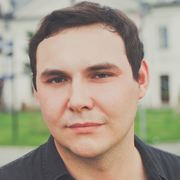 Maciej Jakubowiak is a literary critic and PhD student in the Department of Anthropology of Literature and Cultural Studies at the Jagiellonian University. His research includes the relations between copyright law and modern literature, under the National Science Centre grant. He is interested in critical theories and philosophy of literature. His articles can be found, among others, in „Teksty Drugie”, „Tygodnik Powszechny”, „Wielogłos”, „Dwutygodnik”, „Popmoderna”, and „FA-art”.
Maciej Jakubowiak is a literary critic and PhD student in the Department of Anthropology of Literature and Cultural Studies at the Jagiellonian University. His research includes the relations between copyright law and modern literature, under the National Science Centre grant. He is interested in critical theories and philosophy of literature. His articles can be found, among others, in „Teksty Drugie”, „Tygodnik Powszechny”, „Wielogłos”, „Dwutygodnik”, „Popmoderna”, and „FA-art”.
 Aleksandra Janus – anthropologist, researcher and specialist on openness in cultural institutions within Centrum Cyfrowe co-author of the project Laboratorium Muzeum and a PhD student in the Institute of Ethnology and Anthropology of Culture at th Jagiellonian University. She spoke at several conference devoted to technologies for heritage in Poland and abroad. Last year, she realised an individual research project concerning the experiences of visitors in Polish historical museums. Together with the team at Centrum Cyfrowe, she conducetd a research project crowned by the report Opennes in cultural institutions.
Aleksandra Janus – anthropologist, researcher and specialist on openness in cultural institutions within Centrum Cyfrowe co-author of the project Laboratorium Muzeum and a PhD student in the Institute of Ethnology and Anthropology of Culture at th Jagiellonian University. She spoke at several conference devoted to technologies for heritage in Poland and abroad. Last year, she realised an individual research project concerning the experiences of visitors in Polish historical museums. Together with the team at Centrum Cyfrowe, she conducetd a research project crowned by the report Opennes in cultural institutions.
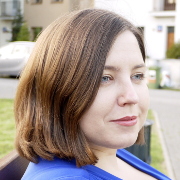 Anna Jarmuszkiewicz – a PhD student of the Faculty of Polish Studies at the Jagiellonian University. Since 2012 she has been headed the research project „Traces of Proust. Problems literary reception in Polish literature after 1945” funded by the National Science Centre. Since 2015 she has run a research project „The problem of orphan works in the cultural memory on the example of writings by selected Jewish philosophers and philologists from the Jagiellonian University (1918-1939)”.
Anna Jarmuszkiewicz – a PhD student of the Faculty of Polish Studies at the Jagiellonian University. Since 2012 she has been headed the research project „Traces of Proust. Problems literary reception in Polish literature after 1945” funded by the National Science Centre. Since 2015 she has run a research project „The problem of orphan works in the cultural memory on the example of writings by selected Jewish philosophers and philologists from the Jagiellonian University (1918-1939)”.
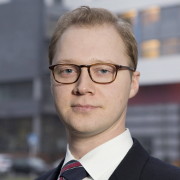 Bernd Justin Jütte is PhD Researcher at the Faculty of Law, Economics and Finance of the University of Luxembourg, where he also completed his LL.M. in European Law in 2011. He holds and LL.B. from the University of Greifswald (Germany). His research focuses on current copyright reform and copyright management, copyright and human rights and user-generated content.
Bernd Justin Jütte is PhD Researcher at the Faculty of Law, Economics and Finance of the University of Luxembourg, where he also completed his LL.M. in European Law in 2011. He holds and LL.B. from the University of Greifswald (Germany). His research focuses on current copyright reform and copyright management, copyright and human rights and user-generated content.
 Alfons Karabuda is a Swedish composer born in Stockholm in 1967. Mr. Karabuda currently holds the position as chairman of SKAP (The Swedish Society of Songwriters, Composers and Authors), president of the European Composer and Songwriter Alliance as well as a member of the board of STIM (The Swedish Performing Rights Society). In 2014, Mr. Karabuda was invited to the UN Human Rights Council by Ms Farida Shaheed to participate in experts meetings and consultations.
Alfons Karabuda is a Swedish composer born in Stockholm in 1967. Mr. Karabuda currently holds the position as chairman of SKAP (The Swedish Society of Songwriters, Composers and Authors), president of the European Composer and Songwriter Alliance as well as a member of the board of STIM (The Swedish Performing Rights Society). In 2014, Mr. Karabuda was invited to the UN Human Rights Council by Ms Farida Shaheed to participate in experts meetings and consultations.
 Arzak Khan is Founder and Director of Internet Policy Observatory Pakistan, where he promotes policies for development of open and transparent Internet in Pakistan. He also researches the marketing of human rights in the global south, the role played by new information and communication technologies and growing censorship of the Internet.
Arzak Khan is Founder and Director of Internet Policy Observatory Pakistan, where he promotes policies for development of open and transparent Internet in Pakistan. He also researches the marketing of human rights in the global south, the role played by new information and communication technologies and growing censorship of the Internet.
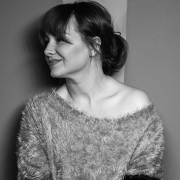 Katarzyna Klich-Płocica – singer, composer, song writer and music producer.
Katarzyna Klich-Płocica – singer, composer, song writer and music producer.
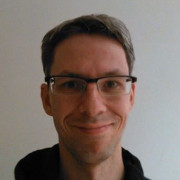 Michał Krawczyk – PhD in economic sciences (Universiteit van Amsterdam), Assistant Professor at the Faculty of Economic Sciences of the University of Warsaw. He specializes in experimental and behavioral economy. He leads a research project “Protection of intellectual property in the internet age”, financed by the National Science Center. Economic analysis”. Within the framework of that research, he conducts field experiments which measure impact of unauthorised access to culture goods for the income which came from selling of those goods.
Michał Krawczyk – PhD in economic sciences (Universiteit van Amsterdam), Assistant Professor at the Faculty of Economic Sciences of the University of Warsaw. He specializes in experimental and behavioral economy. He leads a research project “Protection of intellectual property in the internet age”, financed by the National Science Center. Economic analysis”. Within the framework of that research, he conducts field experiments which measure impact of unauthorised access to culture goods for the income which came from selling of those goods.
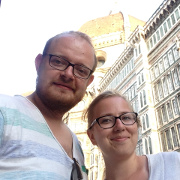
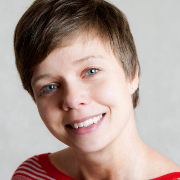 Zsófia Lehóczki – assistant lecturer at the Civil Law Department of Károli Gáspár University Budapest. Her interest in copyright started during her legal studies. After being a trainee there, she spent first years of her professional life working for Artisjus. Nowadays she holds trainings in music rights for the professionals of the Hungarian music industry. Besides teaching she is also at the end of her PhD studies. She’s writing her thesis in digital copyright.
Zsófia Lehóczki – assistant lecturer at the Civil Law Department of Károli Gáspár University Budapest. Her interest in copyright started during her legal studies. After being a trainee there, she spent first years of her professional life working for Artisjus. Nowadays she holds trainings in music rights for the professionals of the Hungarian music industry. Besides teaching she is also at the end of her PhD studies. She’s writing her thesis in digital copyright.
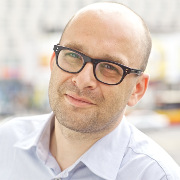 Jarosław Lipszyc – president of the Modern Poland Foundation, author of concept of the website “Włącz Polskę” of the Ministry of National Education, member of the committee of the Citizens of Culture, journalist, participant of debates about ACTA and the future of the copyright. Activist of the free culture movement.
Jarosław Lipszyc – president of the Modern Poland Foundation, author of concept of the website “Włącz Polskę” of the Ministry of National Education, member of the committee of the Citizens of Culture, journalist, participant of debates about ACTA and the future of the copyright. Activist of the free culture movement.
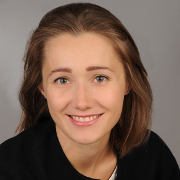 Natalia Łukaszewicz is a PhD candidate at the LMU Munich. Her project investigates the level of freedom to operate provided by patent exceptions and their impact on the Maker movement. She also works at the Fraunhofer-Gesellschaft, in Patent Monetisation Department. In her spare time she is a devoted flamenco dancer and a gardener. The Maker movement and alike open sharing concepts are, in her view, the engines of social and technological changes.
Natalia Łukaszewicz is a PhD candidate at the LMU Munich. Her project investigates the level of freedom to operate provided by patent exceptions and their impact on the Maker movement. She also works at the Fraunhofer-Gesellschaft, in Patent Monetisation Department. In her spare time she is a devoted flamenco dancer and a gardener. The Maker movement and alike open sharing concepts are, in her view, the engines of social and technological changes.
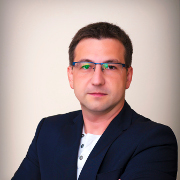 Damian Łukaszyk – member of the Board at Damal Ltd., Trainer and lecturer with many years of experience in Microsoft technologies: MS Office, MS SQL, Server, MS Sharepoint. Programmer and author of applications for business; solutions’ integrator. Member of MENSA.
Damian Łukaszyk – member of the Board at Damal Ltd., Trainer and lecturer with many years of experience in Microsoft technologies: MS Office, MS SQL, Server, MS Sharepoint. Programmer and author of applications for business; solutions’ integrator. Member of MENSA.
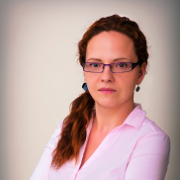 Joanna Łukaszyk – PhD in law, trainer and lecturer (H. Chodkowska College of Science and Commerce of in Warsaw, European University of Information and Economics in Warsaw). She deals with issues of intellectual property, especially in the field of information technologies, and relations between intellectual property and competition law infringements. She also provides legal services for business.
Joanna Łukaszyk – PhD in law, trainer and lecturer (H. Chodkowska College of Science and Commerce of in Warsaw, European University of Information and Economics in Warsaw). She deals with issues of intellectual property, especially in the field of information technologies, and relations between intellectual property and competition law infringements. She also provides legal services for business.
 Marcin Maj – for 10 years, he’s been an editor of Dziennik Internautów, an opinion-forming website debating on the impact of new technologies on the modern society, its law, culture and mentality. He has been also involved in different projects carried out by non-governmental organizations, mainly aimed at building legal awareness of internet users. He’s engaged in a social initiative Copyright Trolling Stop sharing knowledge concerning issues of copyright abuse.
Marcin Maj – for 10 years, he’s been an editor of Dziennik Internautów, an opinion-forming website debating on the impact of new technologies on the modern society, its law, culture and mentality. He has been also involved in different projects carried out by non-governmental organizations, mainly aimed at building legal awareness of internet users. He’s engaged in a social initiative Copyright Trolling Stop sharing knowledge concerning issues of copyright abuse.
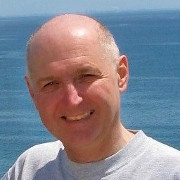 Władysław Majewski – initiator and first editor of the monthly „Bajtek” and „Computer”. Founder of the first FIDO network node in Poland. Founding member of the Polish Internet Community association and ISOC Poland, where he has been a member of the Board since 2001. Active member of FFII during the debate on the patent directive. He participated in the „Dialogue” group and in the meeting which became the beginning for social opposition to ACTA.
Władysław Majewski – initiator and first editor of the monthly „Bajtek” and „Computer”. Founder of the first FIDO network node in Poland. Founding member of the Polish Internet Community association and ISOC Poland, where he has been a member of the Board since 2001. Active member of FFII during the debate on the patent directive. He participated in the „Dialogue” group and in the meeting which became the beginning for social opposition to ACTA.
 Cédric Manara – PhD, has lost his hair teaching, writing or consulting. He has been a full time law professor at EDHEC Business School (France) and held visitorships in Finland, Italy, Japan and the USA, published a lot on intellectual property and internet legal issues, and also was a consultant for e-commerce companies or law firms. He joined Google’s legal team as copyright counsel in 2013.
Cédric Manara – PhD, has lost his hair teaching, writing or consulting. He has been a full time law professor at EDHEC Business School (France) and held visitorships in Finland, Italy, Japan and the USA, published a lot on intellectual property and internet legal issues, and also was a consultant for e-commerce companies or law firms. He joined Google’s legal team as copyright counsel in 2013.
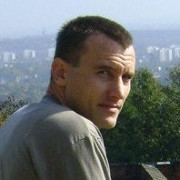 László Mészáros – a Hungarian Wikipedia editor for 10 years, a civil organiser certified NGO manager. He supports projects in field of alternative economy e.g. LETS, local currencies, gift economy, localisation. He lives and works in Cracow.
László Mészáros – a Hungarian Wikipedia editor for 10 years, a civil organiser certified NGO manager. He supports projects in field of alternative economy e.g. LETS, local currencies, gift economy, localisation. He lives and works in Cracow.
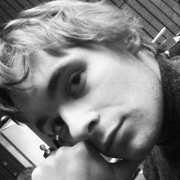 Antoni Michnik – graduate of Art History at the Warsaw University, culture historian and performer. Founding member of the research and performative ETC Group and the Studio of Reasearch on Late Modernity (Polish Culture Institute, Warsaw University). Since autumn 2013, editor of „Glissando”. He published texts in „Kwartalnik Filmowy”, „Konteksty“, „Zeszyty Literackie”, „Kultura Popularna” , „Przegląd Humanistyczny”. Co-editor of the book Fluxus w trzech aktach. Narracje – estetyki – geografie Fluxus in three acts. (Narratives – aesthetics – geographies).
Antoni Michnik – graduate of Art History at the Warsaw University, culture historian and performer. Founding member of the research and performative ETC Group and the Studio of Reasearch on Late Modernity (Polish Culture Institute, Warsaw University). Since autumn 2013, editor of „Glissando”. He published texts in „Kwartalnik Filmowy”, „Konteksty“, „Zeszyty Literackie”, „Kultura Popularna” , „Przegląd Humanistyczny”. Co-editor of the book Fluxus w trzech aktach. Narracje – estetyki – geografie Fluxus in three acts. (Narratives – aesthetics – geographies).
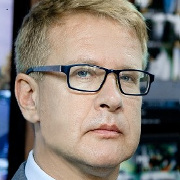 Jarosław Mojsiejuk – lawyer, graduate of Warsaw University, Head of the Office of Fraud Detection in TV Cyfrowy Polsat SA. Previously Director at HP Poland, former Director of the Departmental Offices of the Ministry of the Internal Affairs and Administration, author and co-author of bills related to protection and management of information and e-commerce, including e-signature. For many years, board member of the Polish Chamber of Information Technology and Telecommunications – PIIT, Member of the Board of the Association „Sygnał”, a member of the Association of Creative Poland.
Jarosław Mojsiejuk – lawyer, graduate of Warsaw University, Head of the Office of Fraud Detection in TV Cyfrowy Polsat SA. Previously Director at HP Poland, former Director of the Departmental Offices of the Ministry of the Internal Affairs and Administration, author and co-author of bills related to protection and management of information and e-commerce, including e-signature. For many years, board member of the Polish Chamber of Information Technology and Telecommunications – PIIT, Member of the Board of the Association „Sygnał”, a member of the Association of Creative Poland.
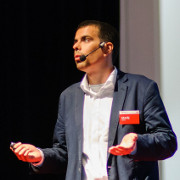 Matěj Myška received his degrees in Law from Masaryk University in 2009 (Mgr.) and 2013 (JUDr.) and currently pursues his Ph.D. Since 2010 he has held the position of a full time lecturer and research fellow in law and technology on the Institute of Law and Technology, Faculty of Law, Masaryk University. Since 2013 he cooperates with the Technology Transfer Office (Masaryk University) as a lawyer. Since 2013 he acts as the Legal Lead of the Creative Commons Czech Republic.
Matěj Myška received his degrees in Law from Masaryk University in 2009 (Mgr.) and 2013 (JUDr.) and currently pursues his Ph.D. Since 2010 he has held the position of a full time lecturer and research fellow in law and technology on the Institute of Law and Technology, Faculty of Law, Masaryk University. Since 2013 he cooperates with the Technology Transfer Office (Masaryk University) as a lawyer. Since 2013 he acts as the Legal Lead of the Creative Commons Czech Republic.
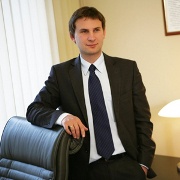 Grzegorz Pacek – PhD in law, legal adviser, member of the Allerhand Institute Academic Association, member of the Polish Group of the International Association for Intellectual Property Protection, lecturer at the H. Grocjusz’s Centre of Law of Intellectual Property. IPR expert in the Regional Development Agency. Author and co-author of scientific and popular scientific publications on new technologies, industrial property rights, copyright and data protection.
Grzegorz Pacek – PhD in law, legal adviser, member of the Allerhand Institute Academic Association, member of the Polish Group of the International Association for Intellectual Property Protection, lecturer at the H. Grocjusz’s Centre of Law of Intellectual Property. IPR expert in the Regional Development Agency. Author and co-author of scientific and popular scientific publications on new technologies, industrial property rights, copyright and data protection.
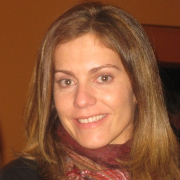
 Hanna Raszewska – graduate of Polish Philology at Warsaw University and Dance Theory Postgraduate Studies at the Fryderyk Chopin Universityof Music. In 2011 she completed a training at the Institute Choreology in Poznań. She lectures on Theories of Dance and Dance Theory (UMFC) and Dance History of the 20th and 21st century (Mazowiecki Institute of Culture) and works as a journalist („Studia Choreologica”, taniecpolska.pl, „Pulse Dance”, „nietak!t Inne strony teatru”). Founder and leader of the Warsaw Kinetografic Laboratory.
Hanna Raszewska – graduate of Polish Philology at Warsaw University and Dance Theory Postgraduate Studies at the Fryderyk Chopin Universityof Music. In 2011 she completed a training at the Institute Choreology in Poznań. She lectures on Theories of Dance and Dance Theory (UMFC) and Dance History of the 20th and 21st century (Mazowiecki Institute of Culture) and works as a journalist („Studia Choreologica”, taniecpolska.pl, „Pulse Dance”, „nietak!t Inne strony teatru”). Founder and leader of the Warsaw Kinetografic Laboratory.
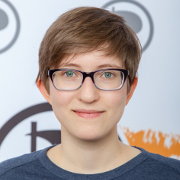 Julia Reda was elected to the European Parliament for the Pirate Party in 2014. She is a Vice-Chair of her parliamentary group, the Greens/European Free Alliance. She is a member of the European Parliament’s Committee on Legal Affairs (JURI), a substitute in the Internal Market & Consumer Protection (IMCO) and Petition (PETI) Committees as well as a co-founder of the Digital Agenda intergroup. Her legislative focus is on copyright and internet policy issues. She is responsible for the Parliament’s evaluation of 2001’s Copyright Directive ahead of an upcoming reform. Born in Bonn in 1986, Julia Reda was a member of the German Social Democrats for six years before joining the Piratenpartei in 2009 amidst a debate on internet blocking. She was chairwoman of the party’s youth wing from 2010 to 2012. She is the founder of the Young Pirates of Europe. [Photo: Tobias M. Eckrich / CC BY]
Julia Reda was elected to the European Parliament for the Pirate Party in 2014. She is a Vice-Chair of her parliamentary group, the Greens/European Free Alliance. She is a member of the European Parliament’s Committee on Legal Affairs (JURI), a substitute in the Internal Market & Consumer Protection (IMCO) and Petition (PETI) Committees as well as a co-founder of the Digital Agenda intergroup. Her legislative focus is on copyright and internet policy issues. She is responsible for the Parliament’s evaluation of 2001’s Copyright Directive ahead of an upcoming reform. Born in Bonn in 1986, Julia Reda was a member of the German Social Democrats for six years before joining the Piratenpartei in 2009 amidst a debate on internet blocking. She was chairwoman of the party’s youth wing from 2010 to 2012. She is the founder of the Young Pirates of Europe. [Photo: Tobias M. Eckrich / CC BY]
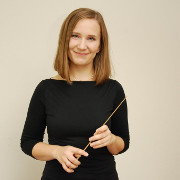 Aleksandra Sewerynik is a lawyer and musician. Author of the first book about copyright written specifically for the music industry called „Copyright Law in Music”. As a freelancer she offers advice to those in need of specialist knowledge of copyright law. She is a speaker at copyright conferences. She is preparing a doctoral thesis on the protection of musical works. Lecturer, trainer, columnist of the Rzeczpospolita daily. She runs a blog prawomuzyki.pl.
Aleksandra Sewerynik is a lawyer and musician. Author of the first book about copyright written specifically for the music industry called „Copyright Law in Music”. As a freelancer she offers advice to those in need of specialist knowledge of copyright law. She is a speaker at copyright conferences. She is preparing a doctoral thesis on the protection of musical works. Lecturer, trainer, columnist of the Rzeczpospolita daily. She runs a blog prawomuzyki.pl.
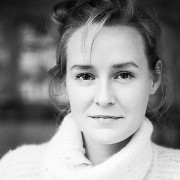 Izabela Smelczyńska – student at the Institute of Musicology of the Warsaw University. She examines and records soundscapes. Co-editor of „Glissando” magazine. Since recently, she’s a member of the research and performative ETC Group. She’s worked for lifestyle titles such as „Exklusive”, „Aktivist!”, „Art&Business” (Photo: Mateusz Nasternak).
Izabela Smelczyńska – student at the Institute of Musicology of the Warsaw University. She examines and records soundscapes. Co-editor of „Glissando” magazine. Since recently, she’s a member of the research and performative ETC Group. She’s worked for lifestyle titles such as „Exklusive”, „Aktivist!”, „Art&Business” (Photo: Mateusz Nasternak).
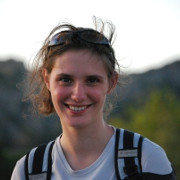 Anna Smywińska-Pohl is a PhD student at the Faculty of Philosophy of the Jagiellonian University, where she is preparing a doctoral thesis concerning first female philosophers. In the Polish Academy of Sciences under the The National Science Centre’s Prelude grant (with Anna Jarmuszkiewicz), she deals with the problem of orphan works of the Jagiellonian University students from the inter-war period.
Anna Smywińska-Pohl is a PhD student at the Faculty of Philosophy of the Jagiellonian University, where she is preparing a doctoral thesis concerning first female philosophers. In the Polish Academy of Sciences under the The National Science Centre’s Prelude grant (with Anna Jarmuszkiewicz), she deals with the problem of orphan works of the Jagiellonian University students from the inter-war period.
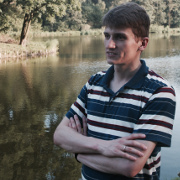 Michał Starczewski is a member of the team working on the Open Science Platform functioning in the Interdisciplinary Centre for Mathematical and Computational Modelling at the Warsaw University. He specializes in analysing open models of scientific communication and supporting their development in Poland.
Michał Starczewski is a member of the team working on the Open Science Platform functioning in the Interdisciplinary Centre for Mathematical and Computational Modelling at the Warsaw University. He specializes in analysing open models of scientific communication and supporting their development in Poland.
 Lucie Straková – Creative Commons Czech Republic lawyer, PhD student at Faculty of Law, Institute of Law and Technology, Open Access Manager at Masaryk University.
Lucie Straková – Creative Commons Czech Republic lawyer, PhD student at Faculty of Law, Institute of Law and Technology, Open Access Manager at Masaryk University.
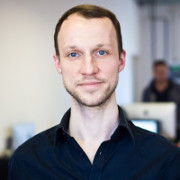 Jan Strycharz – economist, PhD candidate in the Department of Economy and Public Administration of the Cracow University of Economics. His research includes the relations between economy, culture, entrepreneurship and innovativeness. Participant of several research and advisory projects in the field of economy of culture and economy of innovation. He regularly cooperates with the Centre for Evaluation and Analysis of Public Policies of the Jagiellonian University, the Pontifical University of John Paul II in Cracow, Kraków Technology Park and the Malopolska Institute of Culture.
Jan Strycharz – economist, PhD candidate in the Department of Economy and Public Administration of the Cracow University of Economics. His research includes the relations between economy, culture, entrepreneurship and innovativeness. Participant of several research and advisory projects in the field of economy of culture and economy of innovation. He regularly cooperates with the Centre for Evaluation and Analysis of Public Policies of the Jagiellonian University, the Pontifical University of John Paul II in Cracow, Kraków Technology Park and the Malopolska Institute of Culture.
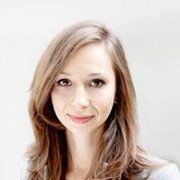 Katarzyna Strycharz – lawyer, graduate of Law at the Jagiellonian University, copyright specialist. She works in Digital Centre Project: Poland, where she analyses law and advocacy of the copyright reform. She works on open education projects and promotes openness of public resources. She conducts copyright and Creative Commons trainings. Member of Creative Commons Polska.
Katarzyna Strycharz – lawyer, graduate of Law at the Jagiellonian University, copyright specialist. She works in Digital Centre Project: Poland, where she analyses law and advocacy of the copyright reform. She works on open education projects and promotes openness of public resources. She conducts copyright and Creative Commons trainings. Member of Creative Commons Polska.
 Weronika Szczawińska – PhD, theatre director, playwright, culture theoretician. Graduate of the Inter-Faculty Individual Humanistic Studies at the Warsaw University. She studied directing at the Theatre Academy in Warsaw. Selected spectacles: Jackie. Śmierć i księżniczka [Jackie. Death and the Princess], Teatr im. S. Jaracza in Olsztyn, 2008; Jak być kochaną [How to be Loved], Bałtycki Teatr Dramatyczny in Koszalin, 2011; Geniusz w golfie [Genius in the Turtleneck], Narodowy Stary Teatr in Cracow, 2014; Teren badań: […] [Field of research [...]], CK Zamek in Poznań, Komuna Warszawa, 2014; Wojny, których nie przeżyłam [Wars I haven’t survived], Teatr Polski in Bydgoszcz, 2015.
Weronika Szczawińska – PhD, theatre director, playwright, culture theoretician. Graduate of the Inter-Faculty Individual Humanistic Studies at the Warsaw University. She studied directing at the Theatre Academy in Warsaw. Selected spectacles: Jackie. Śmierć i księżniczka [Jackie. Death and the Princess], Teatr im. S. Jaracza in Olsztyn, 2008; Jak być kochaną [How to be Loved], Bałtycki Teatr Dramatyczny in Koszalin, 2011; Geniusz w golfie [Genius in the Turtleneck], Narodowy Stary Teatr in Cracow, 2014; Teren badań: […] [Field of research [...]], CK Zamek in Poznań, Komuna Warszawa, 2014; Wojny, których nie przeżyłam [Wars I haven’t survived], Teatr Polski in Bydgoszcz, 2015.
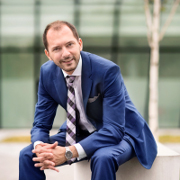 Paweł Szulewski – lawyer, PhD student at the Research Centre for Legal and Economic Issues of Electronic Communication at the University of Wrocław. Law graduate at Jagiellonian University and post-gradute of specialisations in Germany and Austria (EULISP European Legal Informatics Study Programme). Currently interested in the law of new technologies, the law of the electronic media and the Internet law. He received Lexis Nexis Best Paper Award at IRIS 2015 in Salzburg. In private, enthusiast of technological novelties, participant of digital revolution and observer of virtual reality.
Paweł Szulewski – lawyer, PhD student at the Research Centre for Legal and Economic Issues of Electronic Communication at the University of Wrocław. Law graduate at Jagiellonian University and post-gradute of specialisations in Germany and Austria (EULISP European Legal Informatics Study Programme). Currently interested in the law of new technologies, the law of the electronic media and the Internet law. He received Lexis Nexis Best Paper Award at IRIS 2015 in Salzburg. In private, enthusiast of technological novelties, participant of digital revolution and observer of virtual reality.
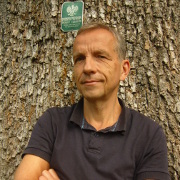 Dariusz Śmiechowski – architect, lecturer at Academy of Fine Arts in Warsaw. Author and co-author of a number of interdisciplinary design solutions. His major interests include design in the spirit of sustainable development, with special attention to ecological and social aspects (respect of resources, health qualities, user participation in the creation of space, new forms of architectural education) as well as journalism and architectural criticism.
Dariusz Śmiechowski – architect, lecturer at Academy of Fine Arts in Warsaw. Author and co-author of a number of interdisciplinary design solutions. His major interests include design in the spirit of sustainable development, with special attention to ecological and social aspects (respect of resources, health qualities, user participation in the creation of space, new forms of architectural education) as well as journalism and architectural criticism.
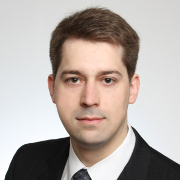 Matija Šuklje is FSFE’s Legal Coordinator, where he works on different Free Software related legal issues. At the time of this writing, he is finishing his LL.M thesis on the Fiduciary License Agreement. Other than being a lawyer, he is a geek, an oldbie in Cyberpipe hackerspace and with almost 20 years of experience with different FS communities. In his free time he enjoys sailing the sea and sipping good tea.
Matija Šuklje is FSFE’s Legal Coordinator, where he works on different Free Software related legal issues. At the time of this writing, he is finishing his LL.M thesis on the Fiduciary License Agreement. Other than being a lawyer, he is a geek, an oldbie in Cyberpipe hackerspace and with almost 20 years of experience with different FS communities. In his free time he enjoys sailing the sea and sipping good tea.
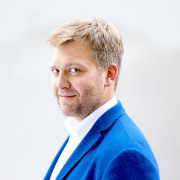 Alek Tarkowski – sociologist, PhD, head of Centrum Cyfrowe: Projekt Polska, organization which helps other institutions on their path to open. Co-founder and coordinator of Creative Commons Poland, adviser for international Creative Commons on the issue of public policy regarding open resources. Vice-chairman of the Coalition for Open Education. Copyright reform activist. His interests include sociology of digital technologies and open models of knowledge and culture production.
Alek Tarkowski – sociologist, PhD, head of Centrum Cyfrowe: Projekt Polska, organization which helps other institutions on their path to open. Co-founder and coordinator of Creative Commons Poland, adviser for international Creative Commons on the issue of public policy regarding open resources. Vice-chairman of the Coalition for Open Education. Copyright reform activist. His interests include sociology of digital technologies and open models of knowledge and culture production.
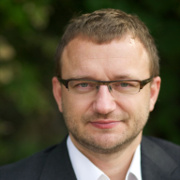 Marek Troszyński – PhD, graduate of history and sociology at Adam Mickiewicz University in Poznań, director of the Digital Civilisation Observatory at Collegium Civitas. Chair of the Local Knowledge Foundation conducting social research for local communities and NGOs. Member of the Consultancy Committee at the Council for Prevention of Ratial Discrimination, Xenophobia, and related Intolerance. As a sociologist, he deals with describing social consequences of culture digitization and the use of automated natural language processing in sociological research over the discourse.
Marek Troszyński – PhD, graduate of history and sociology at Adam Mickiewicz University in Poznań, director of the Digital Civilisation Observatory at Collegium Civitas. Chair of the Local Knowledge Foundation conducting social research for local communities and NGOs. Member of the Consultancy Committee at the Council for Prevention of Ratial Discrimination, Xenophobia, and related Intolerance. As a sociologist, he deals with describing social consequences of culture digitization and the use of automated natural language processing in sociological research over the discourse.
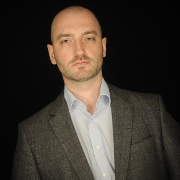 Piotr Turek – enterpreneur and digital market expert. Interested in futurology and new technologies. In Polkomtel (Plus) he developed Muzodajnia and Czasoumilacz music services. In P4 Sp. z o.o. (Play) he was responsible for music, gaming and video services. He worked in Cyfrowy Polsat Group and leading PR agencies building strategies for Microsoft, Xbox 360 or Burger King. He co-owned and headed a youth marketing agency. PhD in economics (Warsaw School of Economics). Lecturer, journalist, expert in new technologies and PR, music and entertainment specialist. In his free time, he travels around the world and composes/produces music and videos.
Piotr Turek – enterpreneur and digital market expert. Interested in futurology and new technologies. In Polkomtel (Plus) he developed Muzodajnia and Czasoumilacz music services. In P4 Sp. z o.o. (Play) he was responsible for music, gaming and video services. He worked in Cyfrowy Polsat Group and leading PR agencies building strategies for Microsoft, Xbox 360 or Burger King. He co-owned and headed a youth marketing agency. PhD in economics (Warsaw School of Economics). Lecturer, journalist, expert in new technologies and PR, music and entertainment specialist. In his free time, he travels around the world and composes/produces music and videos.
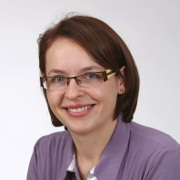 Agnieszka Vetulani-Cęgiel – Assistant Professor in the Department of Press Systems and Press Law at the Faculty of Political Science and Journalism of Adam Mickiewicz University in Poznań. PhD in the science of politics (Jagiellonian University, Cracow 2012). An intern at the European Commission, DG „Information Society and the Media”, Luxembourg (2007/2008). Research interests: processes of lawmaking in Poland and the EU, lobbying, interest groups, European integration, copyright, media and press law, new media.
Agnieszka Vetulani-Cęgiel – Assistant Professor in the Department of Press Systems and Press Law at the Faculty of Political Science and Journalism of Adam Mickiewicz University in Poznań. PhD in the science of politics (Jagiellonian University, Cracow 2012). An intern at the European Commission, DG „Information Society and the Media”, Luxembourg (2007/2008). Research interests: processes of lawmaking in Poland and the EU, lobbying, interest groups, European integration, copyright, media and press law, new media.
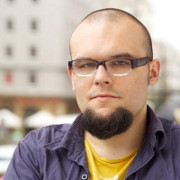
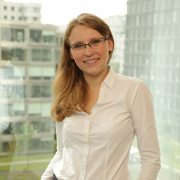 Katarzyna Wypchło – attorney working for Kulesza & Adamiak Law Firm (among others). She graduated from Law and Administration Department of the Warsaw University and post-graduate IP studies at the Jagiellonian University. She is interested in application of new technologies law, including copyright, data protection, trademarks and e-commerce.
Katarzyna Wypchło – attorney working for Kulesza & Adamiak Law Firm (among others). She graduated from Law and Administration Department of the Warsaw University and post-graduate IP studies at the Jagiellonian University. She is interested in application of new technologies law, including copyright, data protection, trademarks and e-commerce.
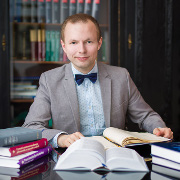 Adrian Zwoliński A trainee lawyer and publicist, representative of the Polish Association of Merchants and Small Manufacturers in the Commerce and Services Council at the Ministry of Economy. [Photo: Konrad Szczodrak]
Adrian Zwoliński A trainee lawyer and publicist, representative of the Polish Association of Merchants and Small Manufacturers in the Commerce and Services Council at the Ministry of Economy. [Photo: Konrad Szczodrak]




